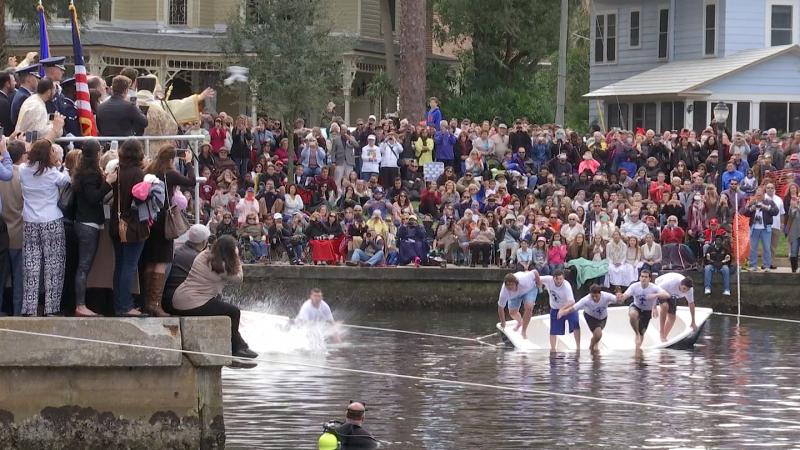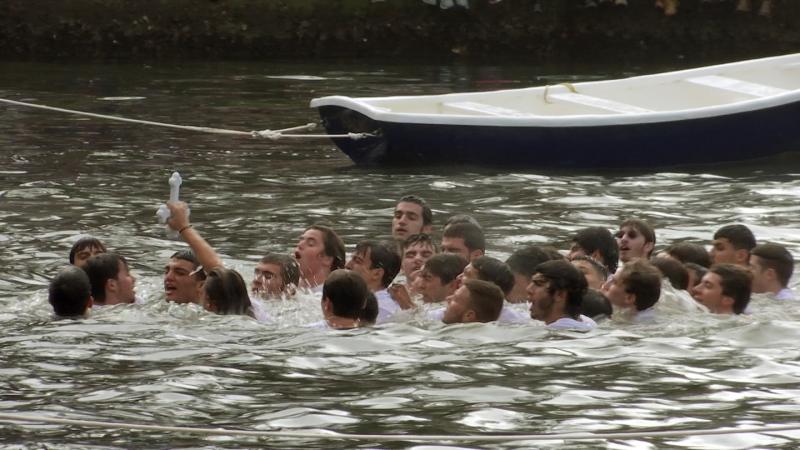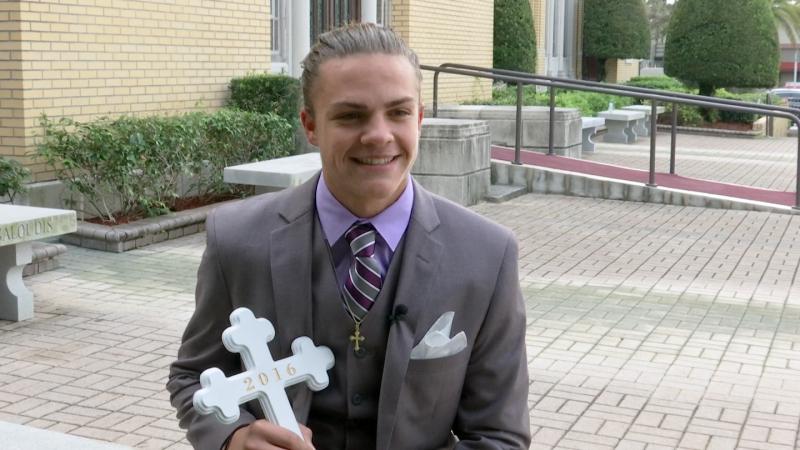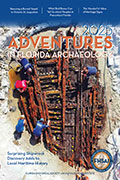Since 1906, the city of Tarpon Springs has held a unique Epiphany celebration every January 6. Thousands of people converge in Tarpon Springs each year to participate in this religious tradition of the Greek Orthodox Church.
Tarpon Springs has more Greek people per capita than any other American city. Hundreds of Greek sponge divers and their families were brought to the town in the early twentieth century. While tourism has replaced sponge diving as the primary economic driver, the sponge docks remain active and the town retains a distinctly Greek character.
“This is like a Greek village here in America,” says Father James Rousakis, dean of St. Nicholas Cathedral in Tarpon Springs. “The people are very much in tune to their culture and their heritage. Adults that came from Greece passed it on to other generations. Even the younger generations still appreciate that.”
St. Nicholas Greek Orthodox Cathedral has been an integral part of the Tarpon Springs community since Greeks first came to the area. The Neo-Byzantine style cathedral was expanded in 1943, to include colorful stained glass and marble from Greece in a domed basilica.
The Greek Orthodox Church can trace its roots back to the earliest church established during the Roman Empire. At its height, the empire encompassed the entire Mediterranean basin including what are now Europe, Turkey, the Middle East, and North Africa. When the empire collapsed in 476, Christian centers in the East and West gradually began developing separate traditions.
“Up to the year 1054, there was only one church,” says Fr. Rousakis. “Finally, the church severed. The West became known as the Roman Catholic Church, and the East became known as the Eastern or Greek Orthodox Church.”
In the Greek Orthodox tradition, Epiphany is the commemoration of the baptism of Christ by John the Baptist in the Jordan River. In Tarpon Springs, the celebration begins with a morning of special services at St. Nicholas. A procession leaves the cathedral around noon, walking a block to the shores of Spring Bayou.
Thousands of spectators are already waiting for the procession to arrive. Ten small boats are tied in a semi-circle in front of a platform that extends out over the water. About 50 young men will dive from these boats, trying to retrieve a cross that will be thrown into the water.
“His Eminence the Archbishop will bless the young divers,” says Fr. Rousakis. “They are boys ages 16 through 18. The boys will make their way to the water and onto the small boats, the dinghies that are there. We will go onto the platform where his Eminence will do a short service and throw the cross into the bayou.”
As the cross leaves the archbishop’s hand, the boys dive from their boats into the water, trying to retrieve it. The young man who emerges from the water with the cross will receive a special blessing for the year.
“There’s a gold cross placed around his neck which he will wear until he leaves this earth,” says Fr. Rousakis. “It’s a wonderful time for that young man.”
At the 110th Epiphany celebration last week, Anderson Combs emerged from the 62 degree water with the cross raised high above his head. It was the second year that the 17 year-old high school senior attempted to retrieve the cross.
“I dove because my yiayiá (grandmother) always told me to dive, she was always into it,” says Combs. “Sadly in 2013, she passed, and I felt that in her honor, I should always dive for the cross.”
As a member of the swim team at his high school, a lifeguard, and a scuba diver, Combs was well prepared for his attempt this year.
“Being able to retrieve the cross today is such an honor, in her name and for my family,” Combs says. “It’s just a great feeling.”
Anderson’s grandmother worked at the sponge docks, and his mother Anna Combs instilled in him a love and respect for their Greek heritage.
“It’s the biggest blessing we could ever have in our family,” says Anna Combs. “Other than the day he was born, this is the most wonderful day of my life, and his.”










